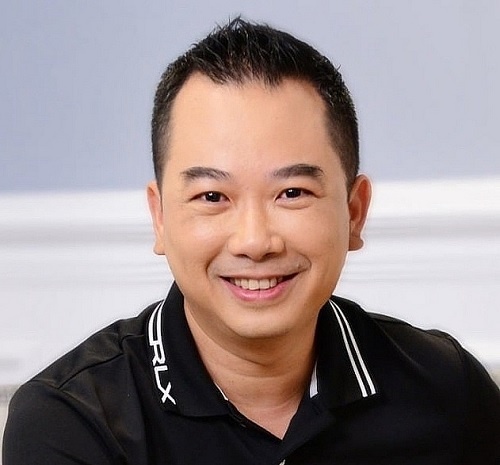AWS cloud – A key for early stage startups to rise high
 |
| Pharmacy at Jio Health |
Entering the Vietnamese market about three to four years ago, Raghu Rai, founder & CEO, Jio Health, has been really amazed about how quickly the venture ecosystem has evolved since then. Companies not only try to copy and paste business models from the west into Southeast Asia, it is actually now starting to see some more hyper localised solutions emerging.
Successful stories
For Raghu Rai, the experiment during COVID-19 is special as his company experienced a pretty significant surge in demand. “I think we grew about 10 times in terms of our virtual care, over 300 per cent in terms of our online pharmacy activity.
It is worthy to note that COVID-19 has changed the way people live and behave towards adapting to technology and early-stage startups tapped into this trend to achieve success. COVID-19 also forces the digitalisation process to accelerate in sectors and also accelerate these types of digital businesses.
Raghu Rai told VIR, “During COVID-19, you have seen a lot of challenges in terms of accessing hospitals, being concerned about whether your loved ones would be exposed to the virus. So I think there is a lot of great use cases now that are making healthtech solutions more widely adopted and solutions like telemedicine more widely used. People had their first exposure to these services and the benefits that they bring.”
 |
| Raghu Rai, founder & CEO, Jio Health |
Jio Health builds the most consumer-centric omnichannel healthcare ecosystem in Vietnam. It is not just a technology company, it provides both online and offline care services and has virtual care telemedicine or online pharmacy – wherever its customers need to care.
To make its business successful, Jio Health decided to use AWS because it has a decade-long lead and the core expertise required, and being a respected and trusted cloud services provider.
“I feel like if you are not using AWS, investors would heavily doubt your ability to manage resources and build a technology infrastructure wisely. Most investors do not want you to focus on building infrastructure anymore. They want you to concentrate on building the product and products like AWS go a long way towards helping you do that. I think most investors look at AWS as a standard, so we are basically embracing like best practices and standards from a product standpoint,” he added. “It is going to automate a lot of our clinical workflows, minimise the administrative minutiae for our care providers. It is also going to enable us to deliver more personalised, affordable care, which is our ultimate vision for the market.”
He added, “Security is very important to us being a healthcare company. Having an integrated solution, everything from encrypted file systems all the way to our virtual private cloud, that is really critical to having the right privacy and data security architecture for our business.”
Seeing the growth potential of the local market, Jio Health is now expanding its network of smart clinics, which should be opening. “As we move forward, we capture a tremendous amount of data from our patients and care providers, ranging from lab results, medical imaging files, prescription history, clinical notes, diagnostics, family medical history. And we are pretty excited to leverage solutions like Sage Maker. It is a really great machine learning tool we can quickly test and deploy some of our machine learning models. We are also really interested in tools that can help us structure medical data, so we can make better use of it, whether it is for driving clinical insights, or improving healthcare outcomes for our patients,” he noted.
Jio Health is one of the exciting examples of startups touching lives and using technology to make it happen. Digital investment platform Infina has also gained fruitful results with technology adoption, especially AWS cloud.
James Vuong, founder & CEO of Infina, said, “The risk has gotten much less now. With some money, you can go very far, especially with programmes like AWS Activate, which offers up to $100,000 for free in AWS credits.”
Promising opportunities ahead
 |
| James Vuong, founder and CEO of Infina |
According to James Vuong, Vietnam is becoming a very attractive market. Within the first 10 months of 2021, more than a million stock brokerage accounts were created, compared to only 400,000 last year and the 200,000 in the year before.
James Vuong remembered when 10 years ago, people were already talking about how Asia was the future. And more recently, people are starting to talk about Southeast Asia, where Vietnam and Indonesia are the two hottest markets.
“Before, many investors would not invest in a company without actually flying there. So they usually invest in a more convenient location, like in their own market but more and more people are basically investing in companies remotely over video calls,” Vuong said.
However, not all startups in Vietnam succeeded. For early-stage startups, money and resources are constrained. According to Raghu Rai, just the inherent scalability of technology, infrastructure gives businesses the ability to be global.
“At any stage of company building, it is important to have a really high degree of focus on your core value proposition. By providing us with some of the layers and infrastructures, AWS is allowing us to invest and allocate our resources towards things that would serve our customers better. It’s really interesting that the barriers to starting a business are so low these days and you have companies like AWS that are actually paying you to start a business,” he said.
 |
| Priya Lakshmi, head of Startup Business, ASEAN, AWS |
According to Priya Lakshmi, head of Startup Business, ASEAN, AWS, the Vietnamese startup ecosystem is thriving due to internet penetration, rapid smartphone adoption, and a significant increase in funding opportunities and accessibility to technology that helps founders bring business ideas to life.
“We're seeing strong funding growth across various stages, both in terms of value and volume, pointing to the really exciting times ahead for Vietnam. Here in Vietnam, we noticed early-stage startup activity happening in a few key industries like fintech, healthtech, e-commerce, software-as-a-service delivery, logistics, and others,” she added.
In the last 18 months, the company has helped numerous startups leverage cloud to quickly invent new solutions, new business models, or even pivot their business models in response to the pandemic. It has seen startups move from offline to online. Travel startups with it very quickly to verticals like fintech, or create solutions such as virtue, collaboration tools to adapt to the changing needs of their customers, and navigate through these rather challenging times.
AWS has accompanied startups in Vietnam in their development journey. At AWS, the company works with startups from the earliest stages to ensure that they are set up for a successful growth journey from idea to idea by helping early-stage startups save time, money, and resources.
AWS offers a broad range of programmes to support its customers at every stage of the lifecycle from early stage to maturity. To help customers get off to a fast start, it offers AWS activate programme. Since its launch in 2013, AWS activators provided hundreds of thousands of startups with a host of benefits including AWS credits, technical support and trainings. In 2020, in the year of the pandemic, AWS has provided more than a billion dollars in credits to help startups build and accelerate their businesses. Last year, AWS released Activate Console, which is designed to support founders through every stage of their startup journey from initial ideation to building the minimum viable product, securing their first customer, scaling their business on AWS and beyond. Activate Console offers founders personalised recommendations on a wide range of topics that may be of interest based on their AWS usage and also tracks and monitors AWS credits in costs.
What the stars mean:
★ Poor ★ ★ Promising ★★★ Good ★★★★ Very good ★★★★★ Exceptional
Themes: Digital Transformation
- Dassault Systèmes and Nvidia to build platform powering virtual twins
- Sci-tech sector sees January revenue growth of 23 per cent
- Advanced semiconductor testing and packaging plant to become operational in 2027
- BIM and ISO 19650 seen as key to improving project efficiency
- Viettel starts construction of semiconductor chip production plant
Related Contents
Latest News
More News
- Vietnam forest protection initiative launched (February 07, 2026 | 09:00)
- China buys $1.5bn of Vietnam farm produce in early 2026 (February 06, 2026 | 20:00)
- Vietnam-South Africa strategic partnership boosts business links (February 06, 2026 | 13:28)
- Mondelez Kinh Do renews the spirit of togetherness (February 06, 2026 | 09:35)
- Seafood exports rise in January (February 05, 2026 | 17:31)
- Accelerating digitalisation of air traffic services in Vietnam (February 05, 2026 | 17:30)
- Ekko raises $4.2 million to improve employee retention and financial wellbeing (February 05, 2026 | 17:28)
- Dassault Systèmes and Nvidia to build platform powering virtual twins (February 04, 2026 | 08:00)
- The PAN Group acquires $56 million in after-tax profit in 2025 (February 03, 2026 | 13:06)
- Young entrepreneurs community to accelerate admin reform (February 03, 2026 | 13:04)

 Tag:
Tag:





















 Mobile Version
Mobile Version